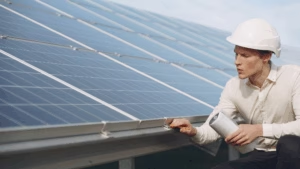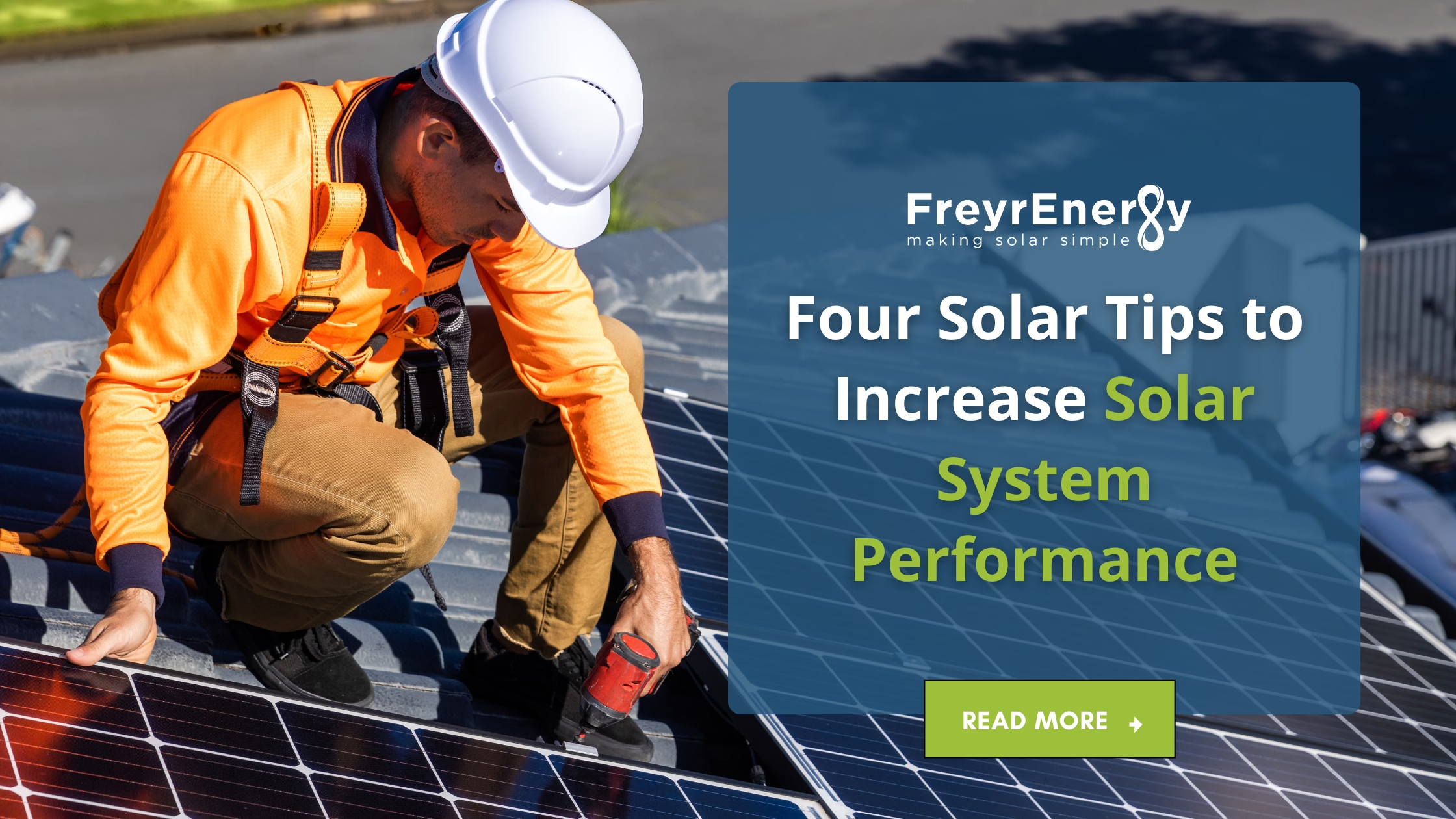With solar power being one of the most abundant and easily available sources of renewable energy, this sector has seen a tremendous increase in the number of people resorting to it. Government support through various incentives and schemes has encouraged huge investments in the solar industry. Along with promoting sustainable living, it is equally important to protect your investment in solar power by being aware of solar panel warranties.
This blog is to educate you about the types of warranties and things to be cautious about.

What is a solar system warranty, and why should you have one?
Solar warranty is a written assurance given by the solar installation company that the components and parts in the plant will be repaired or replaced in case of faults, within a certain period.
Solar panel warranties are imperative. Here’s why:
- You need protection for your investment in solar panels. Warranties help earn a return on investment effectively.
- Without a solar system warranty, you might have to spend heavily on repairs or replacements.
- Warranties cover any manufacturing or installation defect.
- They help prevent any downtime due to the non-functioning of solar panels during the warranty period.
Types of warranties
Product warranty
Any manufacturing defect that affects the solar panels is covered under the product warranty. This may be a crack in the panels, or low-quality materials used, etc. Typically, the solar panel warranty period is for 10-20 years.
Certain premium sellers even offer a solar system warranty for more than 25 years. Warranties may be different for different models of solar panels, even within the same brand. This needs to be checked as solar companies sell various brands and models.
Performance warranty
Solar panel performance guarantee offers cover for specific energy output during the warranty period. Any fall in output generated will initiate the warranty, more so in the initial years.
The level of output differs as the panels age, as companies account for a yearly depreciation.
Installation warranty
Installation or labour warranties cover any faults in installation, wiring, etc., for about 1-10 years. They are separate from the product warranty and are offered by some manufacturers.
Installation warranties are considered very important and should not be missed, as they help reduce huge repair expenses. If not for warranties, you may need to hire trained technicians at a huge cost, who are otherwise readily available with solar companies with a labour warranty.
When does your solar panel warranty become void?
Faulty installation by unauthorized people
Manufacturers maintain certain conditions regarding installation, and technicians who are authorized to do the same. To be covered by warranty, you should engage certified personnel available with solar companies for panel installation.
Modifications
The manufacturer’s solar panel guarantee becomes void when you make any unauthorized modifications to the panels. If you try to do any repairs, replace any components, wiring, etc., which is not from the original equipment manufacturer, you lose your chance to claim warranty.
Environmental damage
Sometimes, panels may be damaged due to natural calamities like storms, floods, hurricanes, etc. Also, any falling branches from trees near the panels may cause damage to the solar panels.
Theft
Manufacturers do not cover claims arising out of theft of panels or components.
Non-registration of warranties
Most manufacturers require registration of a warranty within 30-90 days, for it to be valid. In case you fail to comply with this, your solar warranty becomes void.
Lack of maintenance
Regular maintenance is required for the efficient functioning of solar panels. Neglect of this can lead to the build-up of dust, which causes the warranty to be void.
Manufacturers mention time intervals for maintenance and cleaning during which their technicians’ service can be availed. Failure to do this disturbs the solar panel performance guarantee.
Things to check out in solar panel warranties
The following list will help you with what to check in the solar system warranty:
Exclusions
Read the warranty papers thoroughly and check what is excluded from your warranty by the manufacturer. You may discuss the same with the seller and only agree when you are confident about the terms. Otherwise, you can compare different manufacturers to find the best solar panel installation warranty.
Transferability
Certain manufacturers allow transferability of warranty to the new owner of your house. This is needed when you want to sell your house along with the solar installation. The presence of this condition in solar panels guarantee, increases the value of your house.
Period of warranty
You should check the effective solar panel warranty period available. Some may offer 10-20 years, while certain other manufacturers offer more. Also, the cover depends on the type of warranty.
Labour charges
Whether shipping, labour, etc., are covered in the solar panel warranty is another point to look for. A product warranty may not always be accompanied by labour charge cover.
Depreciation rate
Warranties allow for a depreciation rate each year. Check to ensure that the rate is less than 0.5% per year.
Conclusion
Solar panel warranties involve a lot of conditions. However, they are highly essential to reap the maximum from your solar installations. Without a warranty, you may spend more than the output you get from your solar panels. Make sure you discuss with the seller about what each manufacturer offers and select the best one that suits you.
Frequently Asked Questions
Typically, the product and expected output are covered by the manufacturer.
Most manufacturers generally offer solar panel warranties that last for 10-25 years.
Product warranty covers any manufacturing defect in the solar panels, while performance warranty covers the expected output for a certain period
Transferability must be mentioned in the solar warranty of the manufacturer to be applicable.
Solar system warranty conditions are different between manufacturers, and also various models.
You should approach the solar installation company along with the bills and warranty papers to claim your warranty.



